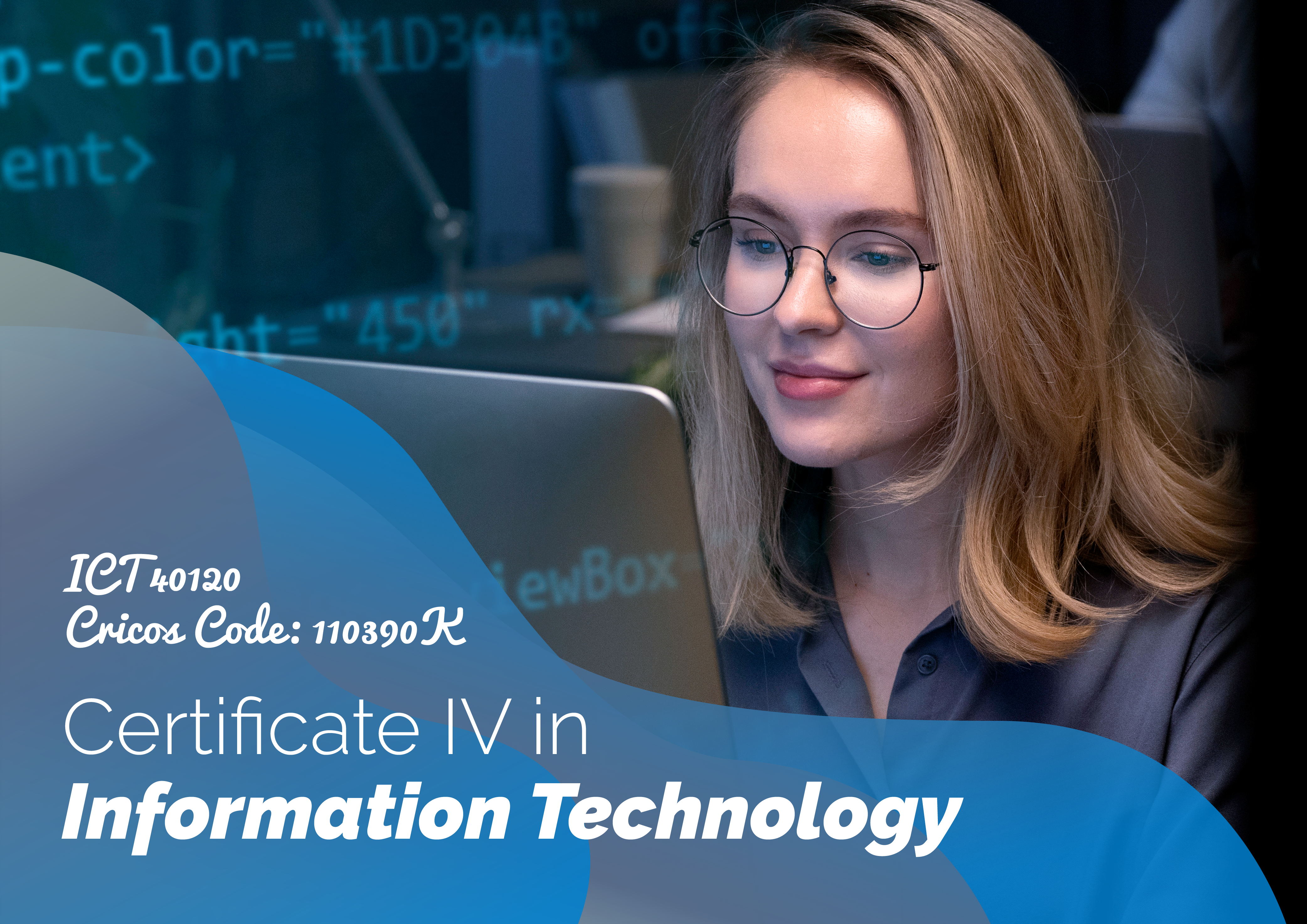Course Overview
Do you enjoy being around children and want to inspire the next generation of young learners?
Start your career in early childhood education!
With this qualification you’ll be entering a rewarding industry that provides education and care to children. With a strong emphasis on practical learning and work placements, you’ll be highly sought after upon graduation.
This course will allow you to potentially take on a supervisor or management role in early childhood education and care, preparing you to establish a safe and healthy environment and design and evaluate programs for children.
| Course Name | Diploma of Early Childhood Education and Care |
| Nationally Recognised | Yes |
| National Code | CHC50121 |
| CRICOS Code | 107903E |
| Delivery mode | Face-to-face classroom delivery Workshops Skill Development Session Seminars Vocational Placement – 280-hours (compulsory) |
| Course Duration | 56 weeks (including 8 weeks holiday) |
| Start dates | Monday, 19 January 2026 Monday, 9 February 2026 Monday, 2 March 2026 Monday, 20 April 2026 Monday, 25 May 2026 Monday, 27 July 2026 Monday, 17 August 2026 Monday, 28 September 2026 Monday, 19 October 2026 Monday, 30 November 2026 Monday, 11 January 2027 |
| Career Opportunities | Early Childhood Educator Childhood Education Manager |
| Entry Requirements | Minimum 17 years of age, Year 12 or equivalent. English levels at minimum IELTS 6 or equivalent. |
| Assessments Methodology | Formative assessment quizzes, summative knowledge assessment (written), and practical assessment (scenario-based). |
| Awarded by | Shafston International Pty Ltd, CRICOS Provider Code: 03917H, RTO Code: 45694 |
A total of 15 units of competency is required to obtain this qualification. On successful completion of the course students will be issued with the CHC50121 Diploma of Early Childhood Education and Care recognised within the Australian Qualification Framework.
Blue Card – Working with Children Check
Volunteers who work with children and young people must hold a Blue Card, unless an exemption applies.
A volunteer or unpaid trainee student must not commence regulated child-related work (vocational placement) until they hold a valid blue card.
Shafston initiates the Blue Card application process at orientation. The application may take up to 28 working days to be processed.
For more detailed information about the Blue Card please click on the link to Government website (below) and you will find further information about the volunteer Blue Card as listed below.
If your Blue Card application is declined you will be unable to commence placement, this will affect your course outcomes. Please note, if you are unsure if you will meet the eligibility requirements please visit the website.
Volunteers & students
Shafston initiates the Blue Card application process at orientation. The application is free and may take up to 28 working days to be processed.
- Do I need a blue card?
- Who is disqualified from applying for a blue card?
- When do I need to apply?
- How do I apply?
- Your rights
- Your obligations
- Deciding who is eligible to work with children
You will need to complete the minimum hours of vocational placement for CHC50121 Diploma of Early Childhood Education and Care (minimum 280 hours).
You will be assisted in securing your vocational placement in an Approved Education and Care Service and be mentored by an experienced educator.
During vocational placement you will put into action everything you have learnt throughout your course.
For more information on Vocational Placement see the Best Practice Guide and Frequently Asked Questions for Students | Frequently Asked Questions for Organisations.
The Diploma of Early Childhood Education and Care (CHC50121) will prepare you to become qualified as an early childhood educator and will provide you with the skills, knowledge and understanding required for this demanding but rewarding career. Career outcomes include:
- Early Childhood Educator
- Childhood Education Manager
- Outside School Hours Coordinator
Qualified early childhood educators have responsibility for the supervision of staff, students and volunteers. In most states of Australia this is the qualification required at Director or Service Manager Level. This course provides a qualification that is nationally recognised and in high demand. Our course will cover children’s development, care and wellbeing; design along with development of the curriculum; legal ethics and workplace health and safety.
We have specialist, experienced childcare trainers, offering you the skills, knowledge and experience to succeed in this rapidly growing industry.
“The process of collecting evidence and making judgements on whether competency has been achieved to confirm that an individual can perform to the standard expected in the workplace, as specified in a training package or a VET accredited course.” https://www.asqa.gov.au/standards-vac/definitions
Your Shafston teacher will formally assess your skills, knowledge and understanding. Assessment is competency based, this means you will be required to show / demonstrate the required competencies for the units of competency you are studying.
In order to ensure that Shafston’s assessment is valid, reliable, flexible and fair, Shafston trainers will conduct assessment as per the assessment conditions for each unit of competency you are studying.
There are many different types of assessment. Multiple and varied assessments are used to ensure that learners are able to demonstrate competency. We will ensure that the assessment is conducted in a manner that is fair, flexible, valid and reliable.
The portal has the following sections Activities, Questioning, Project, and Observation which span across these different tasks. Some of the assessment tasks are ‘stand-alone’ or they may be a combination of these methods of assessment.
There may be
Written assessments include case studies, question-answer type tasks, written reports and assignments, including reflective evaluations, self-evaluations, project work, demonstrations and class presentations.
This includes written or spoken ‘question-answer’ type tasks in an examination.
Your teacher will observe your performance of tasks in real or simulated workplace environments. This includes participation in role-plays, group discussions and demonstrations of practical skills and knowledge. Students on vocational placement will be observed by a qualified professional.
Vocational placement provides the opportunity to observe professionals in your vocation, gain skills specific to your vocation, engage and interact with your community, and most importantly, to apply what you have learnt in the classroom to the ‘real-world’ vocational environment. You will be mentored and supported by an industry professional and have a valuable opportunity to learn in a structured workplace environment. Your teacher as well as the industry professional will both observe your ability to apply the skills, knowledge and attitudes required in workplace situations and environments.
You may already have the skills and knowledge. For more information about Recognition of Prior Learning Student Information, please refer to: https://shafston.edu/forms-policies-and-procedures/
The formal learning takes place through a structured program of instruction through face to face delivery with your Shafston teacher on the Shafston campus.
SHAFSTON ENGLISH LEVEL – ENGLISH EQUIVALENCY TABLE
| Shafston General English | C E F R | Cambridge | Cambridge Business | Pearson PTE | I E L T S | T O E I C | T O E F L |
| C2 | CPE | PTE | |||||
| General Level 5 | 9.0 | ||||||
| Academic 85+ | 110 – 120 | ||||||
| 8.0 | |||||||
| C1 | CAE | BEC – H | PTE | 850 | |||
| Advanced | General Level 4 | 7.0 | 87 – 109 | ||||
| Academic 76 – 84 | 6.5 | ||||||
| Upper-Intermediate | B2 | FCE | BEC – V | PTE | 6.0 | 750 | |
| General Level 3 | |||||||
| Academic 59 – 75 | 5.0 | 57 – 86 | |||||
| Intermediate | |||||||
| B1 | PET | BEC – P | PTE | 4.5 | 550 | ||
| General Level 2 | 4.0 | ||||||
| Pre-Intermediate | Academic 43 – 58 | ||||||
| 41 – 56 | |||||||
| A2 | KET | PTE | 30 – 40 | ||||
| Elementary | General Level 1 | ||||||
| Academic 30-42 | |||||||
| Beginner | A1 |










